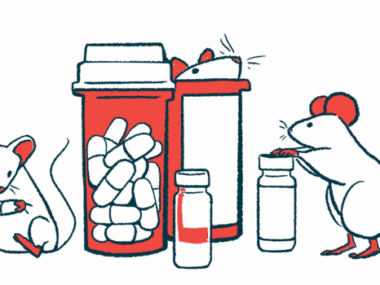First Sanfilippo Type B Patient Treated with High-Dose ABO-101 Gene Therapy in 2nd Part of Phase 1/2 Trial
Written by |

Abeona Therapeutics has started dosing the second group in its ongoing Phase 1/2 clinical trial testing ABO-101, treating the first patient with Sanfilippo syndrome type B with a high dose of the investigational gene therapy.
This follows completion of the first part of the trial (NCT03315182), in which patients diagnosed with Sanfilippo syndrome type B were treated with a low dose of Abeona’s gene therapy candidate. The company plans to announce interim data from the trial before the end of this year.
Enrollment is still ongoing at the Nationwide Children’s Hospital in Ohio and the University Hospital of Santiago de Compostela in Spain. Abeona anticipates opening up more sites worldwide this year. For more information on how to participate, visit the trial’s registry page or Abeona’s webpage.
To participate in the study, patients must be at least 6 months old and diagnosed with Sanfilippo syndrome type B confirmed by undetectable or significantly reduced NAGLU enzyme activity and by genetic testing.
“We believe that ABO-101 can help address the underlying lysosomal enzyme deficiency that ultimately results in progressive cell damage and neurodevelopmental and physical decline in children with MPS IIIB,” João Siffert, MD, CEO of Abeona, said in a press release.
In the ongoing open-label, non-randomized Phase 1/2 trial, researchers are exploring the safety and efficacy of low- and high-dose ABO-101.
Participants will receive a one-time injection into the vein (intravenously) of one of the two doses of ABO-101 being tested. Researchers will then assess the treatment’s impact at six, 12, and 24 months after gene therapy administration.
The primary goal of the trial is to assess the safety of the treatment and overall tolerability. The efficacy of ABO-101 will also be determined by evaluation of heparan sulfate levels in the cerebrospinal fluid (the fluid that surrounds the brain and spinal cord), blood, and urine, as well as by assessment of NAGLU enzyme activity, and patients’ muscular and cognitive functions.
Researchers previously reported that a low dose of ABO-101 was well-tolerated by the first patient treated with no side effects at one month post-treatment. Importantly, heparan sulfate levels in the patient’s cerebrospinal fluid were significantly reduced.
“The product safety profile to date and clear evidence of biological activity provide support for advancing this clinical trial to the second cohort,” Siffert said. “We look forward to presenting interim data in the second half of this year.”
Sanfilippo syndrome type B, also known as mucopolysaccharidosis type IIIB (MPSIIIB), is caused by mutations affecting the NAGLU gene, which provides instructions for making the NAGLU enzyme. This enzyme is responsible for breaking down long complex sugar molecules called heparan sulfate.
MPSIIIB patients have poorly active NAGLU, leading to the accumulation of heparan sulfate inside lysosomes — tiny vesicles within cells that digest and recycle different types of molecules. This results in metabolic impairments, inflammation, and degeneration of cells in the central nervous system.
ABO-101 is a first-in-human, adeno-associated viral (AAV)-based gene therapy designed to treat MPSIIIB. It is designed to be given only once by peripheral vein infusion (administered through a catheter inserted into a vein).
The experimental treatment is intended to deliver a functioning copy of the NAGLU gene to cells of the central nervous system and peripheral organs to reverse the effects of the genetic mutation that causes the disease.
ABO-101 has received rare pediatric disease designation and fast track status from the U.S. Food and Drug Administration, and orphan drug designations in the U.S. and EU.




